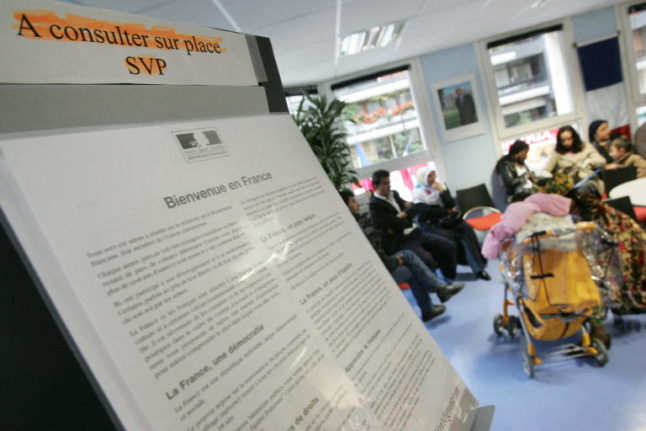Broadly the difference is this – citizenship gives you a lot more rights but is consequently harder to get hold of.
Here’s a look at how the different categories work:
Non-resident visitor
This category covers everything from people having a long weekend in Paris to those doing short-term work in France or second-home owners.
You can visit without becoming a resident, but your length of stay is limited. For citizens of countries including the UK, USA, Australia, New Zealand and Canada this limit is 90 days in every 180.
If you’re the citizen of an EU country you are not constrained by the 90-day limit, while citizens of certain countries – including India – need a visa even for short visits.
READ ALSO How long can you stay in France without becoming a resident
The upside of this is that for most people there’s no paperwork, but you don’t have any legal status or right to stay in the country – or enter it if the borders close.
You also won’t have access to healthcare if you need it while you are here so will need to make sure you are covered via health insurance or – for EU citizens – the European Health Insurance Card (UK nationals have their own version known as a GHIC).
Residency
This means that you are officially allowed to live in France and the requirements for being a resident vary according to the country that you come from.
Citizens of EU countries and those within the Schengen zone benefit from European freedom of movement, which means they are entitled to move to France to live and work. This freedom is not completely unlimited – there are conditions around criminality and minimum income level – but is fairly generous.
France is unusual among European countries in that it doesn’t require EU citizens to register – most other European countries require Europeans to register their residency after a certain period in the country.
However if you intend to make France your permanent home you do need to register in the health system to get a carte vitale health card and make an annual tax declaration.
People who are not citizens of an EU or Schengen zone country – known as Third Country Nationals – have more hoops to jump through before they can become residents.
For most non-Europeans, moving to France involves first getting a visa and then registering for a residency card, known as a carte de séjour. The visa process can be both complicated and expensive and varies depending on your reason for coming to France – you can find out more about the process HERE.
READ ALSO How much money do I need to get a visa for France?
British nationals who were resident in France before the end of the Brexit transition period (December 31st 2020) were given a fast-track system to residency, but Brits who arrive in France after that date need a visa – find out the visa requirements for Brits HERE.
Once you have your residency in place this gives you the right to stay here – with limitations.
You can stay in accordance with your paperwork, so if you have a one-year visa you can stay for a year of if you have a five-year carte de séjour you can stay for five years. You can usually extend your visa/carte de séjour but you have to make fresh applications each time and it’s not automatic that you will be granted a new card or visa.
If you commit certain types of crime you can be removed from the country, while other crimes will mean getting a new visa or carte de séjour becomes more difficult.
EU citizens have the right to vote in local and European elections (but not presidential ones) while non-Europeans have no voting rights.
Certain types of jobs are reserved for French citizens only, while others – especially within public administration – are reserved for EU citizens only. Non citizens cannot stand for president, but EU citizens can stand as candidates in local elections.

Fancy leading France one day? Being born abroad doesn’t rule you out, but you will need to get French citizenship before you begin your bid for the presidency. Photo: AFP
Citizenship
This is the gold standard and once you have become a French citizen you are, officially at least, exactly the same as French people who were born and bred here.
READ ALSO 10 reasons why you should consider becoming French
You are entitled to stay here for the rest of your life, even if you commit a serious crime (citizenship can be revoked in extremely rare cases, usually linked to terrorism), and you can pass your citizenship on to your children. You can also leave the country for as long as you want and return to live without having to fill in extra paperwork.
You are entitled to vote and – in good news for those with political ambitions – you can stand for any type of office including the presidency, since France has no requirement that presidential candidates be citizens from birth.
But the flip side of this is that citizenship is not easy to obtain.
If you don’t have French parents then the most common ways to obtain citizenship are through marriage to a French person or through residency. You are also entitled to citizenship if you serve in the French Foreign Legion but it’s fair to say that’s not an easy option.
You can find out more about how to gain citizenship HERE but you need to fulfil a number of criteria including having lived in the country for five years (or being married for four years if you are applying through marriage), a minimum level of French language and a thorough knowledge and appreciation of French values and culture.
QUIZ Do you know France well enough to become French?
The application is not a quick process – the average time is 18 months to two years – and involves a lot of paperwork. If original documents are in English you may have to have them translated into French and you will need to pay a certified translator to do this.
If you satisfy all the requirements and once your paperwork is all processed you are presented with your citizenship in a special ceremony and sing La Marseillaise.



 Please whitelist us to continue reading.
Please whitelist us to continue reading.
Member comments